In addition to English and German, the 2015 Thought Leader Index also analysed the Spanish and Chinese language areas for the first time. Many different networks emerged from this analysis. They show the relationships between Thought Leaders in the Twitter-, Wiki- and blogosphere.
Networks 2015
English Language Area: Websphere
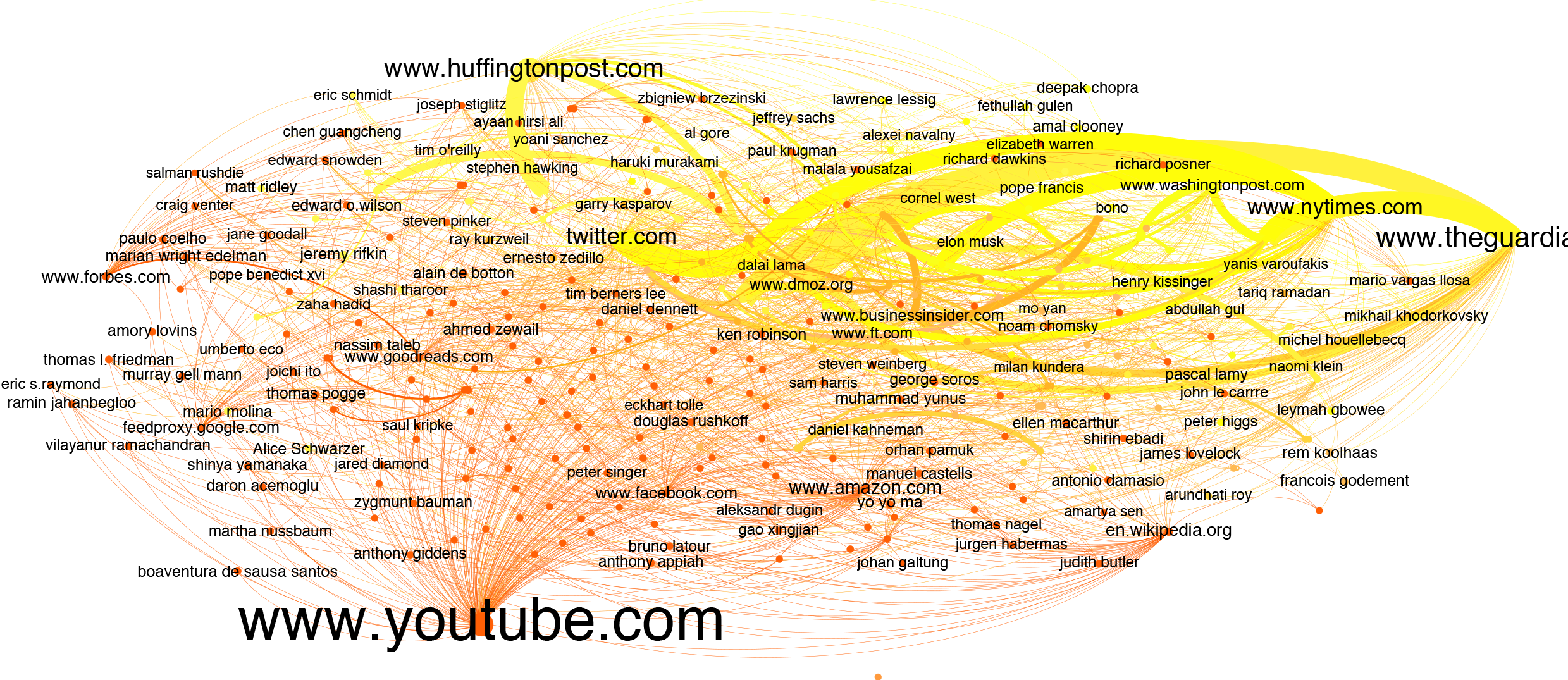
Youtube beats them all. The most important of the high-distribution media in this category is by far YouTube, even though the analysis covered text and not images. US visionaries head the list of thought leaders: economist Jeremy Rifkin, cellist Yo-Yo Ma, and children’s rights activist Marian Wright Edelman.
English Language Area: Wikisphere
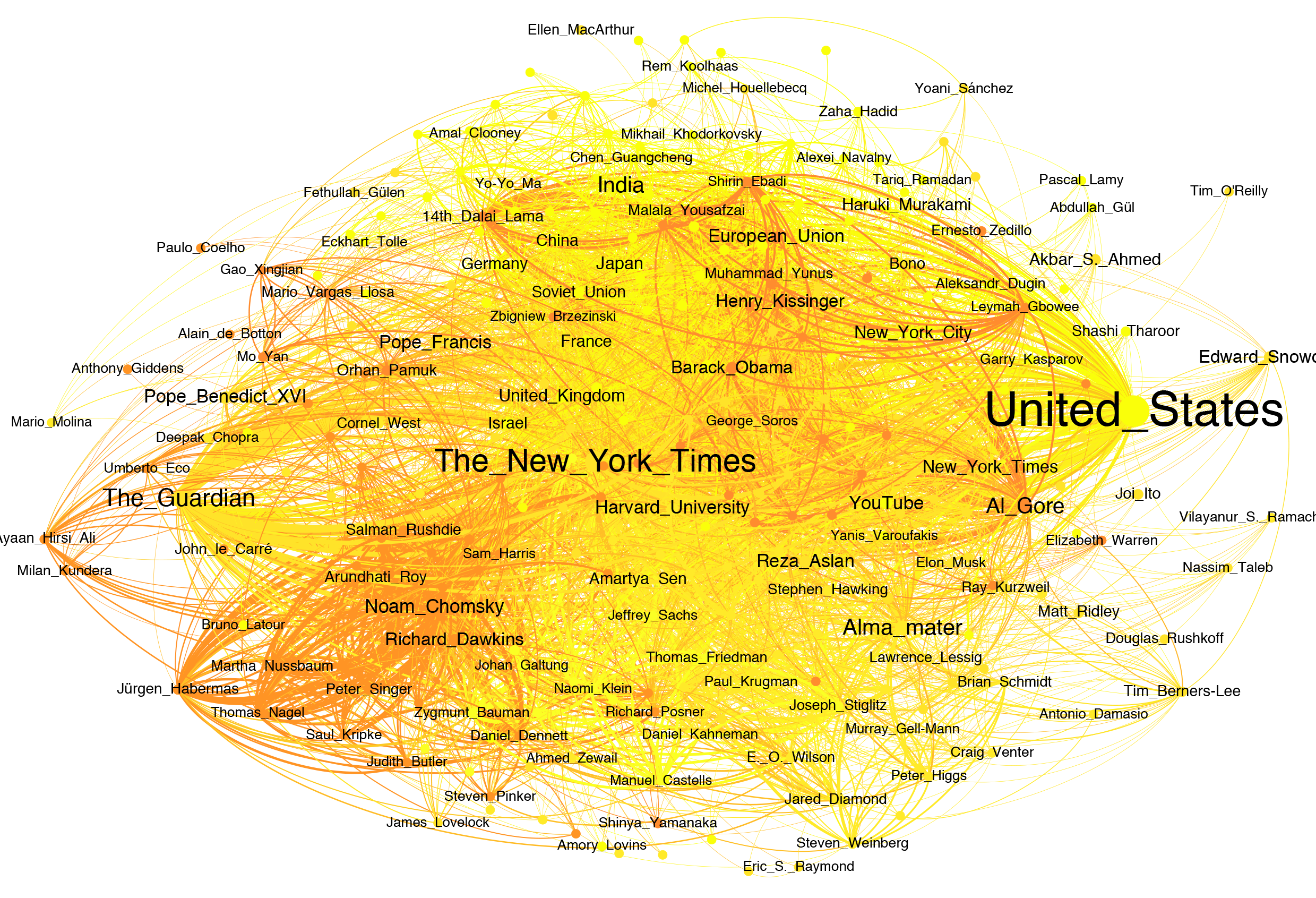
Leftist thinkers and quality media outlets. The most important thought leaders here are former Vice-President of the United States and environmental activist Al Gore, and US author and linguist Noam Chomsky. Both received the highest “betweenness centrality” rating from the CoolHunting software analysis. The most important media are “The New York Times” and “The Guardian”.
English Language Area: Twittersphere
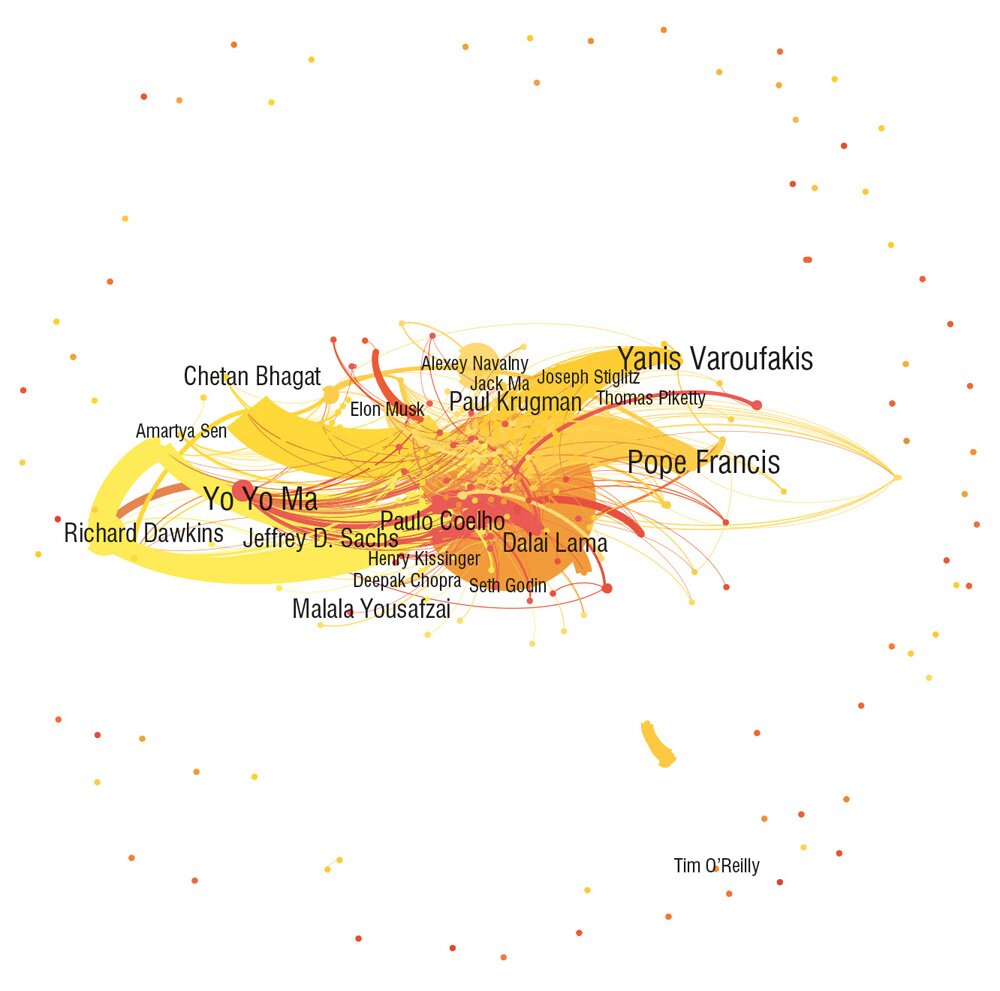
2015 Global Thought Leader network on Twitter. Leading positions for candidates with a large community (the Pope), a large Twitter following (Coelho) or many appearances (Varoufakis).
Hispanic Language Area: Websphere
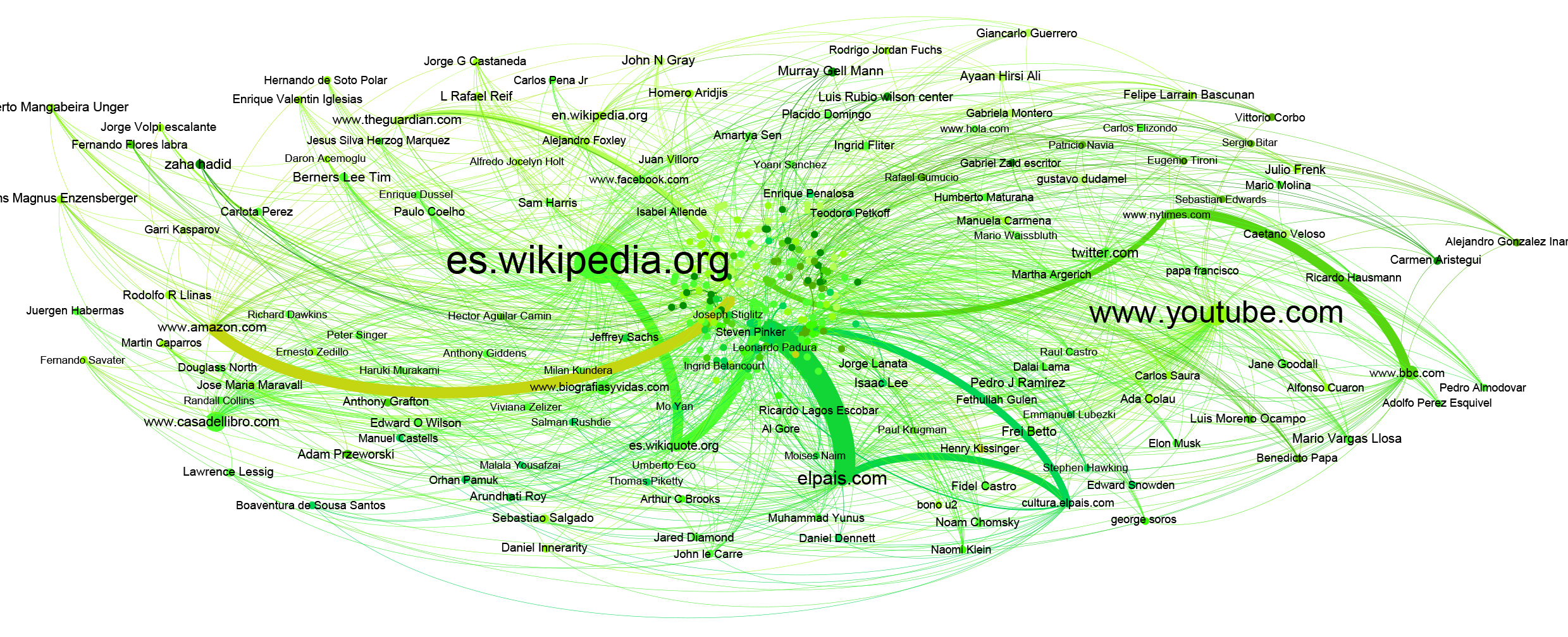
Youtube beats traditional media, again. In this category, the most important reference media are YouTube, Wikipedia, and the Spanish newspaper El Pais. The best-networked intellectuals are Iraqi-British architect Zaha Hadid, British World Wide Web founder Tim Berners-Lee, and Brazilian philosopher Roberto Mangabeira Unger.
Hispanic Language Area: Wikisphere
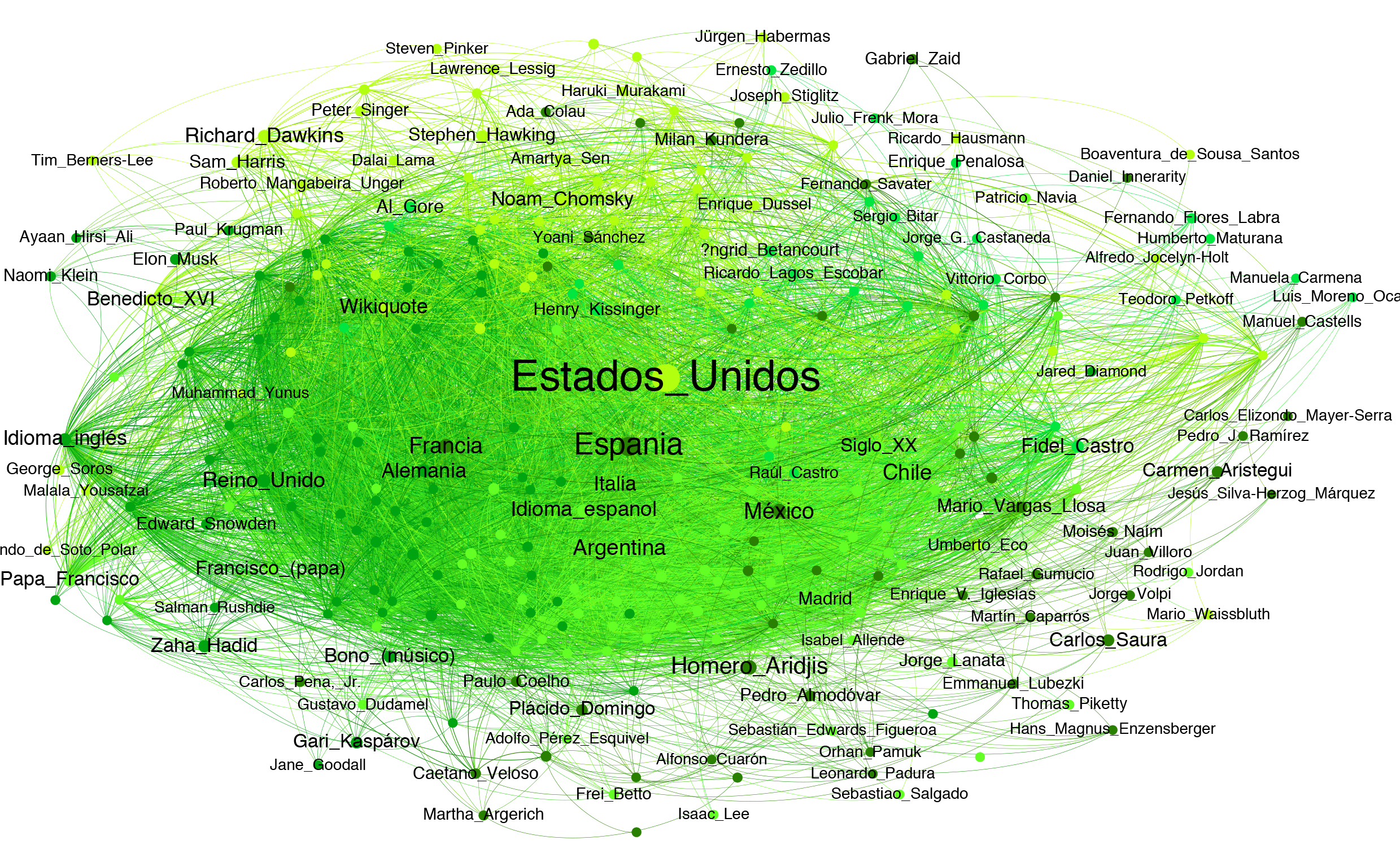
Hasta la influencia, siempre! Those with the greatest network density, or “betweenness centrality”, in this category are Mexican author Homero Aridjis, British scientist Richard Dawkins, and former Cuban dictator Fidel Castro.
German Language Area: Websphere
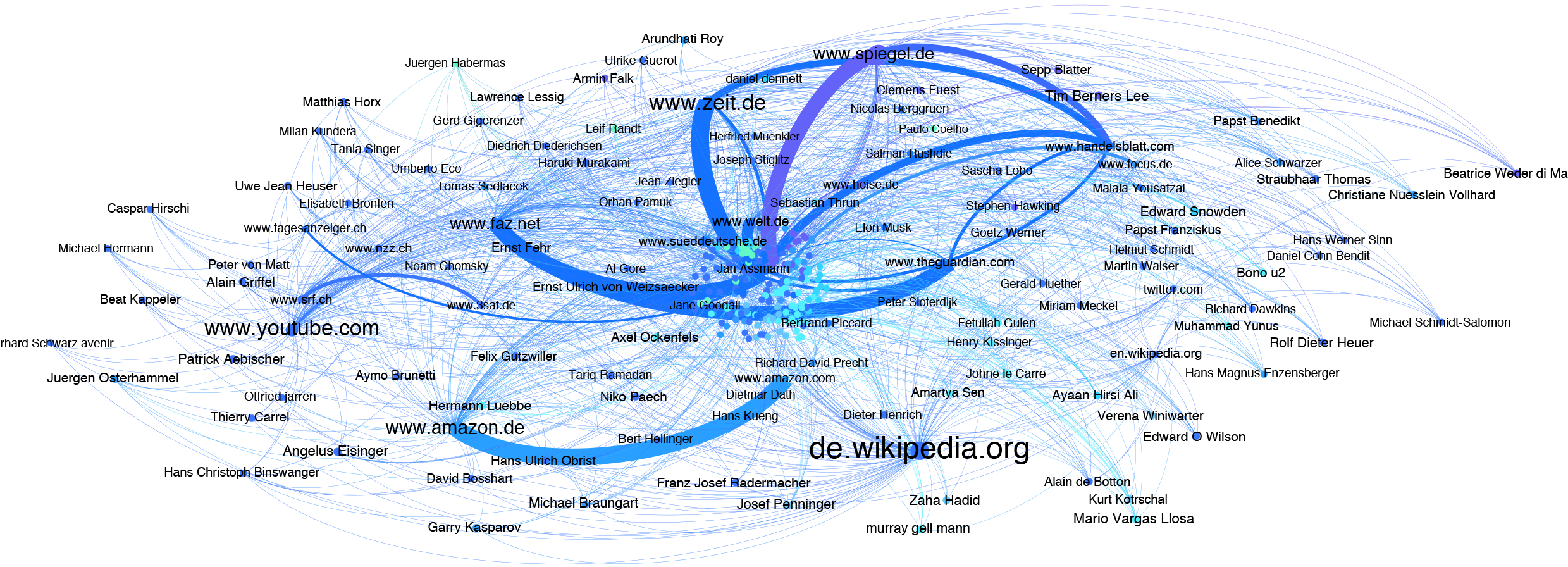
Swiss historian beats web founder. The most important media source here besides Wikipedia is the German weekly “Die Zeit”. The unexpected leader of the network ranking is Swiss urban development and planning historian Angelus Eisinger, followed by British World Wide Web founder Tim Berners-Lee, and Peruvian Nobel laureate Mario Vargas Llosa.
German Language Area: Wikisphere
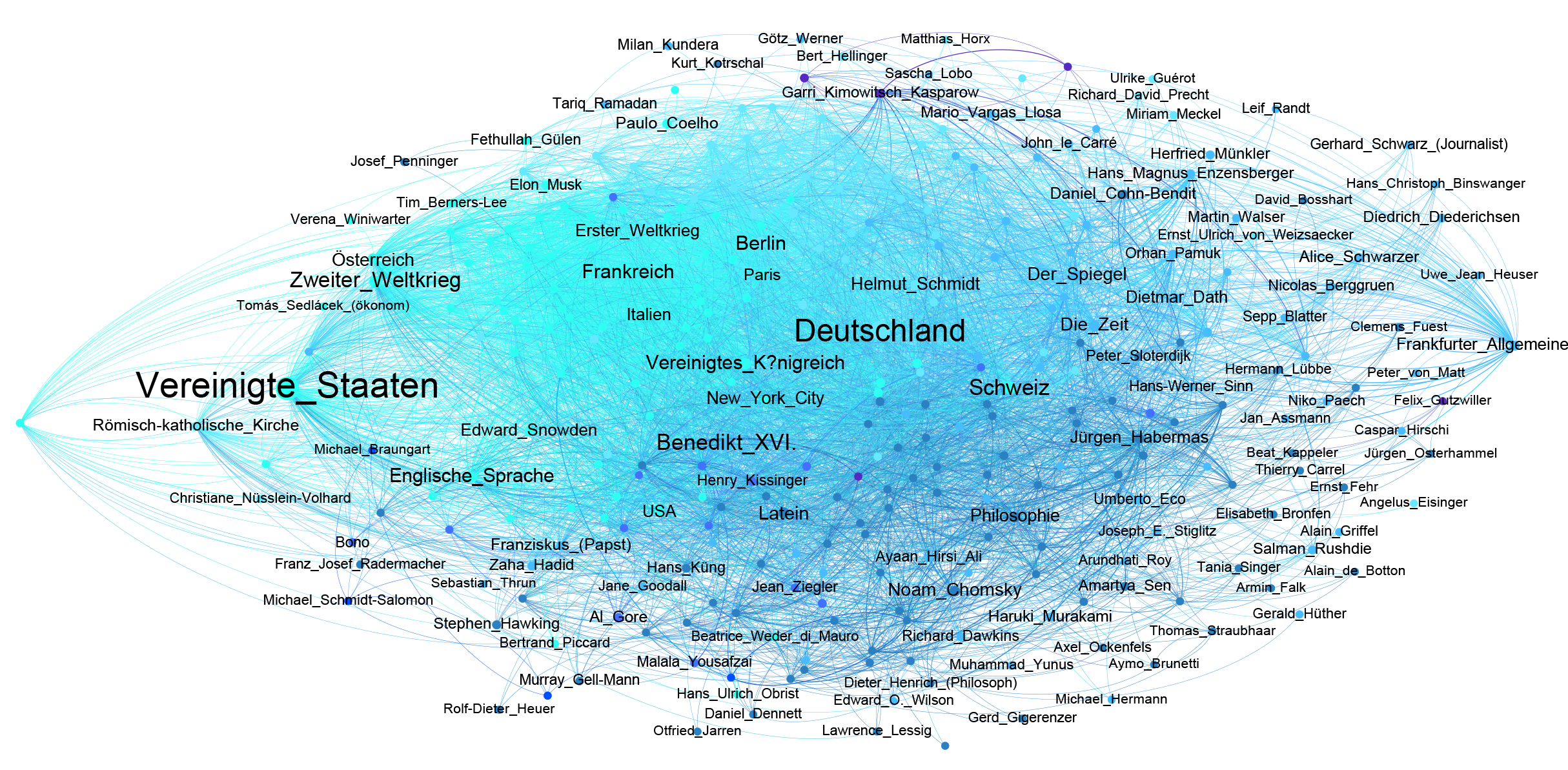
Former pope, former chancellor. Former Pope Benedict XVI from Germany achieved the highest score for “betweenness centrality” in this category, finishing ahead of US author and linguist Noam Chomsky. In third place in the summer 2015 analysis was former German Chancellor Helmut Schmidt, who died in November 2015.
Chinese Language Area: Websphere
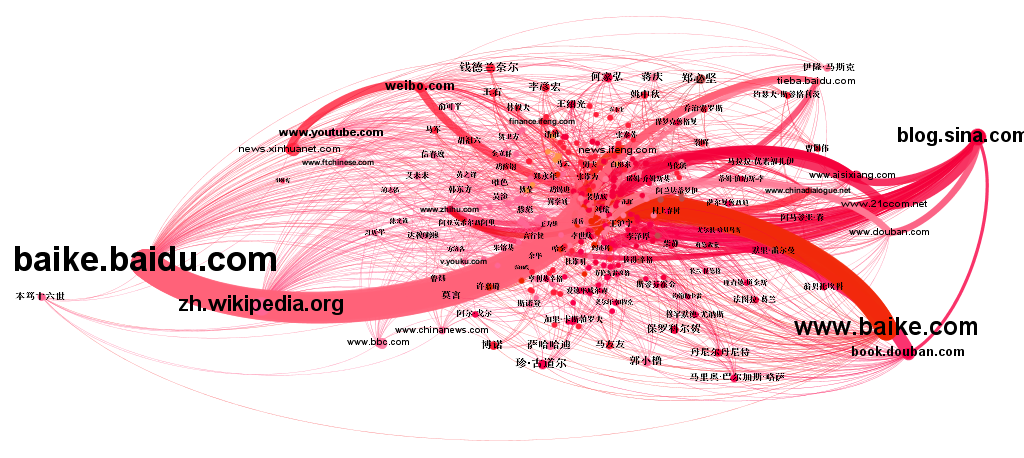
A copy of Wikipedia. In this category, the most important media company is Baike, a web service from the search engine Baidu that is similar to Wikipedia. Finishing in the top rankings are Chinese political scientist and government adviser Zheng Bijian, as well as British anthropologist Jane Goodall.
Chinese Language Area: Wikisphere
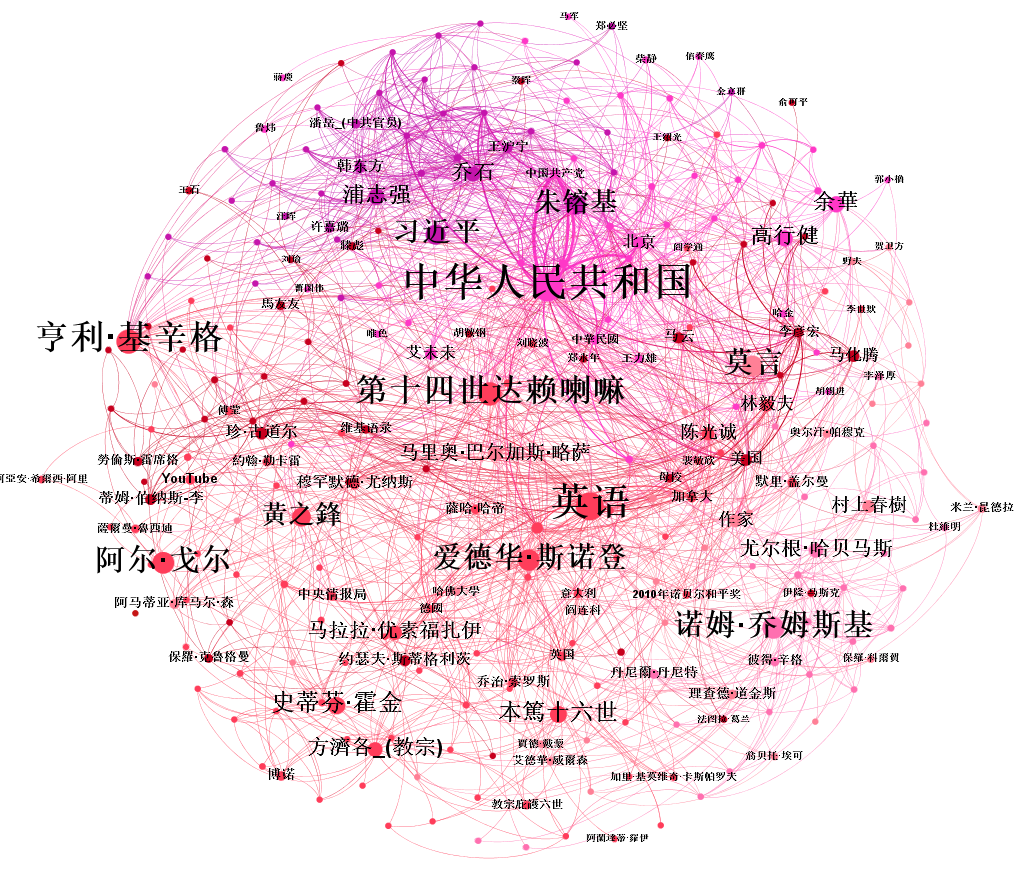
Conversation outside China only. From the analysis’ calculations, the best-networked visionaries in this category were the spiritual leader of the Tibetan people, the Dalai Lama, political veteran Henry Kissinger, and former Vice-President of the United States and environmental activist Al Gore. The results were only calculated for the Chinese speakers living outside China, as access to Wikipedia is barred inside the country.